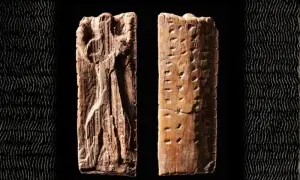Abdur Rahim Majzoob, Pashto’s hopeless Romantic
12 min readIf the colonial masters and to some extent our State had their way, the Pashtun would only be known as vengeful, illiterate and obsessed with ghairat. They would have had the world believe that the Pashtun loves his mother, beats his wife and drips blood from his beard.
Fortunately, however, these nasty racist stereotypes have been countered by the great Pashto poets of the 20th Century. This was a time dominated by the likes of Ajmal Khattak, Ghani Khan, Qalandar Mohmand—writers who espoused the Political, the Mystical and the Progressive. Ajmal Khattak and Qalandar Mohmand devoted their pens to the political. Hamza Shinwari is renowned for weaving the philosophy of mysticism with Pashtunwali. Ghani Khan, the eldest son of Bacha Khan, traded in the psychological, philosophical and sensual.
In particular, there is one more voice, according to Javed Ehsaas at the Peshawar Literature Festival, which is distinguished from all the above for its Romanticism. Despite being surrounded by such larger-than-life figures of Pashto literature, Abdur Rahim Majzoob found his own voice. Of course, his poetry carried the flavor of the progressive, mystic, philosophical but its most striking aspect was its romanticism.
Javed Ehsaas, a poet and a lecturer from Bannu whose poetry was cherished by Abdur Rahim Majzoob himself, was one of three panelists for a session on ‘‘Abdur Rahim Majzoob: A mesmerizing voice of Pashto Poetry’’ last week. He was joined by Dr Fazal Rahim Marwat, who served as VC of Bacha Khan University, and is an author, his latest book being Khushal Khan Khattak: The Pioneer of Afghan Nationalism, Dr Mohib Wazir, who has a doctorate in Pashto literature and has written a book on Abdur Rahim Majzoob. The session was moderated by Said-Ul-Amin Ahsan, a civil servant and a voracious reader, who is considered by many to be an authority on Majzoob’s work.
Some people claim that Majzoob was not a progressive but Dr Muhib Wazir countered this perception which was probably based on the assumption that the poet preferred to live in a village rather than in a large villa in the city. Majzoob was the son of a landlord but he hated it when somebody called him like that or Khan, an honorific used in Lakki Marwat to refer to landed gentry. He preferred Majzoob sahib.
I know this because he was my maternal grandfather; I am the eldest son of his youngest daughter (and Dr Fazal Rahim Marwat on the panel is my eldest maternal uncle.) It was thus with great pleasure that I learnt of the session at the literature festival on my grandfather and went to attend. What you are reading is thus, in part a report on the session, but also a look back at the poet’s life from my vantage point. I humbly hope that it may contribute some sense of why he was a Romantic.
Sardar Ali Takkar sang a song based on Majzoob’s poetry: Stargey (Eyes)
I am the magician of love
I am a merchant of eyes
I am the magician of love
I am the merchant of eyes
But tell me, which eyes do you want?
Tell me which eyes do you want?
Abdur Rahim, son of Abdul Karim Khan, was born on January 14, 1935 in the village Nar Sahib Dad Maidad Khel, District Lakki Marwat. Abdul Karim Khan was a landlord who had a keen interest in education, but he couldn’t pursue his own beyond the 8th or 9th grade because his own father had passed away, leaving him to care for the family. Nevertheless, he made sure that his children received the best education available at the time.
He first sent his Abdur Rahim to the mosque to acquire an elementary religious education and learn the Holy Quran, which But Abdur Rahim found difficult to cope with at such a young age. But then, a maulvi sahib who was a master at Persian introduced the boy to Bostan and Gulistan of Sheikh Sa’di, Yusuf Zulekha and Sikandar Nama among other works. It was this maulvi sahib who sowed the seeds of poetry in the young mind, and from Sheikh Sa’di, Abdul Rahim graduated to Mirza Ghalib and Allama Iqbal, Khushal Khan Khattak and Rahman Baba. In addition to Persian, Abdur Rahim also learnt Sanskrit because his father appointed him a tutor, which I reckon was made possible as there were a lot of Hindus in nearby villages in Lakki Marwat in those days.
Though his father was happy at the thought of Abdur Rahim reading the literary giants, he wanted him to pursue medicine. So he sent him to DI Khan for his intermediate and pre-medical. There was a dearth of science teachers at his college and it had no laboratory. He claimed in an interview that he wasn’t good at rote learning and had trouble with Chemistry. It is therefore not surprising then that at one point, Abdur Rahim opted out of pre-medical and did his FA from Bannu.
In Bannu, because of his command over Persian, the principal asked him to teach the language to the first-year students. His association with Persian persisted. The renowned poet Ahmed Faraz was a student at the Persian department so Abdur Rahim must have brushed shoulders with him. I found a compilation of Faraz’s works in the stack of books that filled his bedroom.
The director of the Pashto Academy at UoP was impressed with Abdur Rahim’s command over the language since he had translated a few Persian works to Pashto for him. He even offered him a job as a lecturer in the Pashto department which Abdur Rahim respectfully declined.
Majzoob’s sensitivity and expansiveness towards languages is thus evident from the grounding in Persian, Hindi/Sanskrit, Arabic he received in his early years. He was known as a polyglot, in fact. But perhaps not everyone understood the bearing this had on his work. During the session, Dr Muhib Wazir recounted that one of Majzoob’s contemporary’s Hamesh Khalil had written that even though Majzoob was a great poet, he has used Banuchi words and dialect (the people of Bannu are commonly referred to as Bannuchis) in his work.
Dr Fazal Rahim Marwat gave a befitting answer to Hamesh Khalil’s criticism. First of all, the dialects of the Marwats and Bannuchis are as different as light and day. Second, Dr Fazal Rahim Marwat revealed that he had asked Abdur Rahim Majzoob why he preferred to include words used in the Marwat dialect. Majzoob had replied that if he did not do that, Pashto would cease to exist like many languages that have now been forgotten. He could not be a purist.
For his BA Abdul Rahim went to Peshawar and joined the prestigious Islamia College and later, on the insistence of his father, enrolled at Law College, University of Peshawar. Abdur Rahim mentioned that his father was not in favour of him writing poems. His father’s idea of poetry was that a poet eventually became a musician and he considered music or musicians inferior. That is why he insisted his son study Law.
It was during the course of his BA that Majzoob grew interested in English literature. He was captivated by Romanticism and its poets (Byron, Shelley and Coleridge) but most of all, he was inspired by the plays and sonnets of William Shakespeare. Before graduating, he had read most of the Greek literature such as Homer’s Odyssey, Virgil’s Aeneid. This is perhaps why we see a strain of Romanticism and Greek mythology in his poetry.
Only to the doorman, I could get,
and life was weary and drained,
Let alone trudging the hard way to the beloved.
All it was the blessing of a sun-visaged beauty,
An earthling like me had been vaulted to the Skies!
I tapped into my intuition secrets unique,
Digging into my inner being made me find the world.
Short is the saga of separation and union of love,
Found Him in every place I went.
Standing bewildered in my quest of The Truth,
In fleeing from human beings I reached humanity.
What are you aiming for with this talk of mystery and allusions O, Majzoob!
The meaning gets tangled up when I tried to get your point.
(translated by Aslam Mir from his book Darul Auham or House of Whims)
Abdur Rahim translated Shakespeare’s narrative poem Venus and Adonis into Pashto and titled it ‘Da Meene Tanda’ or ‘The thirst for love’. It was not just a literal translation, but a poetic localized translation, which testifies to his command of poetry in different languages and how he had mastered the art of transforming characters, bringing them into his own world.
Abdur Rahim and fellow poets formed an association called Zalmi Likwal (Young Writers).They would participate in Pashto and Urdu mushairas. He also wrote elegies. One of my favorite ones is the one he wrote on the demise of my paternal aunt’s daughter, an unfortunate soul who took her own life. My grandfather said that when he heard about it, he wept and composed an elegy titled ‘Mari Khabare Kawi’ (The dead speak out). Its first verse roughly translates as:
My relatives will mourn me, I will be dead
It will be an exhibition to the people but I’ll be dead
After completing his LLB, he began practicing civil law at Bannu but when courts were set up in Lakki Marwat, he moved to Lakki city with his family (Abdur Rahim had three sons and six daughters). Dr Fazal Rahim Marwat revealed that people would underestimate Majzoob whenever he would go to court to plead a case. They would look down on him because he didn’t dress as fancily as the other lawyers, preferring to show up in a shalwar kameez and waistcoat. But when he would start making his arguments, he wouldn’t look at any book of the law. He had the law memorized. Women would come to him with property disputes or if their land had been grabbed. He would fight those cases for free too. Dr Marwat asked him why, and he said they were helpless, had no one to go to.
Dr Fazal Rahim Majzoob said he fought more than 200 cases for Mazdoor Kissan Party, for workers or volunteers pro bono. But besides that he was active in Lakki Marwat in almost all demonstrations against Ayub Khan. Dr Muhib Wazir said that Majzoob actively participated in the protests of Mazdoor Kissan Party and even gave placards with slogans on them to Dr Fazal Rahim Marwat and his sister.
Certain poems suggest he was a staunch nationalist. Take the example ‘Da Rame Sponkia Sa Shwe’, which could be roughly translated to ‘Where are you, O, Shepherd?’ It was dedicated to Khan Abdul Ghaffar Khan when he was in Afghanistan. The poem reads like a cry of anguish, for Abdur Rahim wanted Bacha Khan to come back and lead Pashtuns, who he though were led astray. Another giveaway is that his poem was titled ‘Pashto o Pashtun’ which translates to ‘Pashto and Pashtun’.
There are many interpretations of the word Majzoob. Those associated with Sufism write that a Majzoob is a person who devotes his life to Allah. The Rekhta dictionary translates it to someone who is absorbed, someone who isn’t concerned with his surroundings, is aloof. I reject both these meanings. Neither was my grandfather a Sufi nor was he aloof. (As a child, I was known as ‘Da Majzoob lmasai’ or the grandson of Majzoob, which irritated me as I wondered why he didn’t have a proper name.)
When his children settled, he dedicated his time to literature, observing nature and tending to those who were ill. He would even tend to the cattle if they were suffering or if he felt the chickens were ill. He knew the symptoms of their sickness: ruffled feathers, eating less than normal, discharge from eyes etc. Even though he had left FSc pre-medical as a teen, as a grown man he had compiled a list of medical books and had gone through them. He knew more about diseases and cures than most doctors at the hospital in Lakki Marwat.
Wayee Qalandar (Qalandar Mohmand) che Ghazal
charta de Khe Wayee, Majzoob ta ghazal pate de
Qalandar asks, where is Ghazal!
True but Ghazal is left to Majzoob
He even helped people who has psychiatric conditions. One time, a psychologically disturbed man came to the village to meet Majzoob. He came across a man who told him Majzoob had passed away (he was teasing him for Majzoob was alive and well). But when the man heard that Majzoob had died, he shrieked and wrestled the bearer of ill tidings to the ground.
Otherworldliness
Majzoob had a special relationship with his grandmother who would captivate the boy with stories of fairies and monsters. We could perhaps see in this the beginnings of his understanding of otherworldly themes, which is the hallmark of a Romantic.
In fact, my relationship began with him when I started requesting him to tell me horror stories, which repelled and attracted me in equal measure. I was a timid child, but I was fascinated with the supernatural. The one I distinctly remember was a chapter from Qudratullah Shahab’s Autobiography Shahab Nama.
The title of the chapter is ‘Bimla Kumari Ki Be-chain Rooh’ (Bimla Kumari’s restless spirit). He didn’t mention that he was narrating a chapter from a book, nor did I know about any Qudratullah Shahab but his storytelling skills made it so believable that it gave me nightmares.
He also told me a story about his hostel days when he woke up in the middle of the night and saw a fellow running around in the ground. Abdur Rahim went out, hid in the bushes in attempt to scare the man but when the fellow came near him and my grandfather sprung to scare him, whatever it was simply moved through him. He got so scared that he caught a fever.
Departures
Majzoob’s work also got him into trouble. His book ‘Da Noor Mazharuna’ (Manifestations of Light) goes into depth discussing religions ranging from the Vedas to the Torah and Bible. For this work the clergy denounced him and called him a heretic. My answer to those maulvis is that this man translated Surah Rehman into Pashto and always stood for peace and tranquility.
The clerics even claimed that whenever Majzoob died no one would offer his funeral prayers. But when he did pass away in October 2021, people from as far as Balochistan, ranging from poets to scholars to teachers, even BA students came to offer the funeral prayers and scores of people came to offer condolences for at least a month at the home.
False Morning It’s false light, Distrustful is this light, Followed by the darkness of night, All weary souls still wait for the morning, The night is long And no hope of its breaking, It’s a false morning; Real morning has not yet dawned.
I compare Abdur Rahim Majzoob to the character of Roderick Usher from Poe’s The Fall of the House of Usher. He felt the pain and anguish of humans and animals alike, locking himself in his room during Eid Ul Azha. He once told my father that during his days at Islamia College, he would stay up all night and listen to the birds. “You might have heard a nightingale sing, but I’ve also heard it wail.”
For the latest news, follow us on Twitter @Aaj_Urdu. We are also on Facebook, Instagram and YouTube.



























Comments are closed on this story.